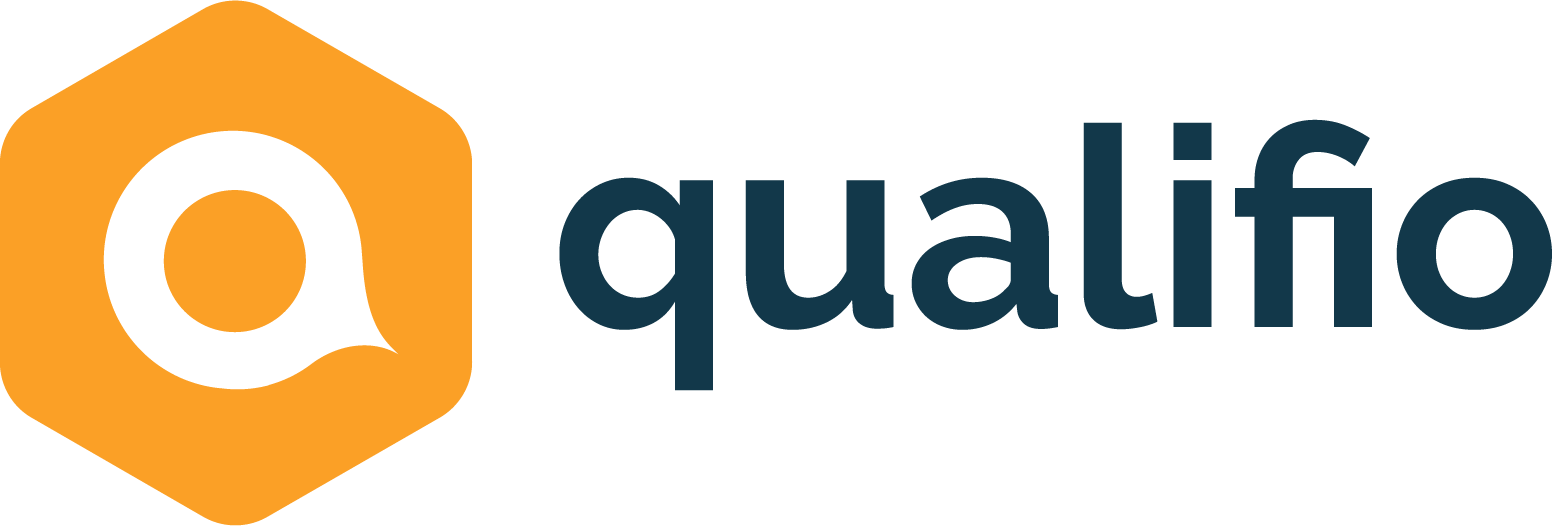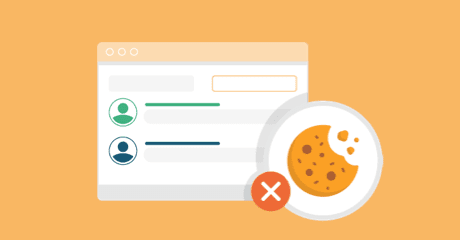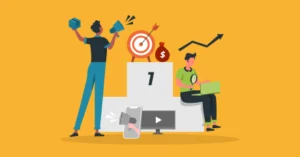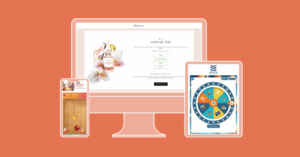Third-party cookies: the end of an era, what the experts are saying
Third-party cookies will soon be a thing of the past – here’s what the experts are saying.
When Google announced in January 2020 that they would no longer be supporting third-party cookies on their browsers from the end of 2021, the digital ecosystem understandably panicked. The shock waves of this decision impacted the whole of the online landscape, from the publishers to the advertisers, to the solution providers and of course the users. So the general initial reaction to Google’s announcement was one of panic and concern.
The general mindset has shifted considerably since then though, not only have Google reined in their dismissal of third-party cookies, subsequently announcing that they wouldn’t be making any radical changes until the second half of 2024. But all parties involved in this major technological shift have also had time to process and analyse what a cookieless world would look like and what the implications for them would be.
Much has already been said and written about the cookieless world that we will soon be entering, but we wanted to get the inside insights from a panel of experts from B2C brands and Adtech/Martech vendors about how they are considering the future without third-party cookies.
For the B2C brands that we spoke to, Nestlé Purina and Decathlon, the transition to a cookieless world means revising their data collection strategies to rely more on zero- and first-party data as their ability to drive ads will be heavily impacted.
And for the Adtech/Martech vendors that we spoke to, they’re each developing their own solutions to help their customers to face the challenges ahead with the right tools in hand.
- OMD are focusing the solutions they’re offering around authenticated and probabilistic identities in order to maximise the value of their customers’ first-party data.
- Actito will be exploiting their own existing technology to help their customers to consolidate the information they already have.
- Lotame have built an identity solution for the open web that will continue to provide customer understanding and engagement in a cookieless world.
- At Qualifio we believe that one of the best solutions for businesses who are looking to increase their reach and their online presence despite the absence of third-party cookies, is to have a well-thought out and innovative approach to data collection, by focusing on gathering first-party and mainly zero-party data from their audience.Read our article about zero-party data here to find out more.
- Contextual technology, content and creativity are Seedtag’s keywords moving forward.
Keep on reading and get all the details on the insights from the experts we spoke to.
Nestlé Purina and their focus on collecting PII
We are already seeing the consequences of a cookieless world in our industry as some technologies are already phasing out storing cookies, impacting our ability to drive ads.
In a cookieless world it will be more difficult to be efficient when posting ads but it will be more beneficial for our visitors as their privacy will be increased.
So it’s not going to be easy without third-party cookies and it will be important to treat and collect PII correctly.
“We will be incrementing the collection of first- and zero-party data to counter the effects of the disappearance of third-party cookies at Nestlé Purina.”
– Aleix Monegal – Nestlé Purina Petcare EMENA, Head of Digital Operations

Decathlon (via Semetis) are betting on new targeting approaches
The end of third-party cookies has already had an important impact on the way we interpret data, and especially on the way we attribute the performances of our acquisition channels. Indeed, with the lifetime of the cookies becoming shorter on some browsers (Safari, Firefox, etc), evaluating the impact of every one of the user’s touchpoints with our brand has become much more complicated. And once Google Chrome also stops supporting third-party cookies, the impact will of course be even greater.
We have already started planning how to approach this cookieless future. We will be putting different strategies and tactics in place:
- We will be relying more on first-party data
- We will be counting on technical implementation to try to diminish the impact (whilst still staying compliant)
- We will implement server-side tracking
- Google Consent Mode, Google Enhanced Conversions, etc
- Accepting and going for data modelling
- We will be looking into new ways to target people (ex: using more contextual and lookalike audiences)
The disadvantages of the cookieless world are clear, especially in the marketing industry. The following 3 elements will be impacted:
- 📐 Measurement
- ✅ Data unification
- 👥 Audience creation.
So the way we look at data will change drastically as will the level of precision this data can give us.
The advantage of third-party cookies no longer being used for Decathlon is also one of our biggest challenges. We need to get closer to our clients to have more direct communication with them. Therefore, first-party data will be crucial.
The way marketers look at data will also face a drastic change. We won’t be able to have 100% precise information. We won’t be able to avoid conversion modelling and will need to embrace it. The same goes for attribution, we will need to accept that it will become an even more complicated topic in the future.
Advertisers will try to gather as much first-party data as possible. So we expect to see the hunt for customers’ personal data to boom in the coming years.
We are not afraid about the audience part. All the big advertising players (Google, DSP, etc) will find solutions to still be able to make “interest or affinity” based audiences even if they’re not cookie based (cohort audiences, etc). But on the other hand, retargeting will be a challenge.
On the publisher side, it’s clear that we will be seeing more “subscription” business models emerging. Especially for websites with qualitative content. So the CPM on very qualitative websites is also likely to increase as people will fight for those top impressions.
“We don’t believe it will be the end of advertising online. Publishers and DSP’s will find tactics and new features to be able to advertise in a legally compliant way.”
– Adriaan Reeskamp – Semetis, eBusiness Consulant (on behalf of Decathlon Belgium)
Qualifio and zero-party data – how interactive marketing can help with data collection
With over 50 interactive marketing campaign formats, Qualifio helps brands and media companies to collect consented first- and zero-party data from their online communities. So the end of third-party cookies has meant that brands are having to put more focus and priority on collecting, qualifying and segmenting their first-party data. With no more, or limited, access to third-party data, marketeers have realised the untapped opportunities at their disposal if they engage and get to know their existing communities better (both on their owned and earned media platforms), and this has generated many new and exciting opportunities for Qualifio. The buzzword going around the market at the moment and a topic that is being increasingly talked about is zero-party data, see our blog post on this subject to understand what it is.
We have designed the Qualifio platform and services to ease the process of zero- and first-party data collection for our customers, enabling them to build up and implement an efficient and cost-effective zero- and first-party data strategy.
We have made sure that our platform is:
- ✅ Easy to deploy for non technical users
- 🔐 Secure & respectful of data privacy
- ♻️ Integrated with other tools (to avoid having data silos) so that data can flow from one system to another
- 🌍 Easy to roll out for an entire organisation, across multiple countries and multiple brands
The end of third-party cookies is a vast topic that has been much written about so there is a lot to be discussed and debated. On one hand I’m expecting consumers to share more with the digital advertising ecosystem as they will hopefully feel more in control of their data, and this is a good thing. On the other hand, the cookieless world will hurt media companies and publishers, as they will no longer be able to rely on third-party data but will benefit those of them who have the strongest technical capabilities and financial resources, mostly the GAFAs of this world.
“Your brand is strong, attractive and in possession of a lot of data. Stop relying on complex, non-transparent AdTech ecosystems and be creative. Context and content are kings. You don’t need tons of data: starting to make better use of the data you already have access to is already a real challenge! Understanding the consumer who is tired of not knowing where their data is being stored and used is the best strategic and long-term option you can take.”
– Olivier Simonis – Qualifio, Co-founder and Chairman of the Board
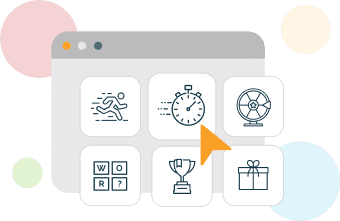
Over 50 interactive formats to choose from for your marketing campaigns!
OMD have based their approach around 4 core areas
We’re investing significant resources in developing strategies and approaches to counter the loss of the third-party cookie. We’ve focused on maximising the value of our client’s first-party data, whilst also finding compliant data-driven opportunities to power prospecting and acquisition strategies.
At OMD we have focused our solutions around 4 core areas:
- Authenticated identity: leveraging personally identifiable information (such as email address) to collect and match profiles across domains and devices.
- Probabilistic identity: leveraging cross-device partners as well as statistically based ID solutions to build relationships between devices and domains.
- Contextual and cohort: leveraging a range of solutions that support content based and real-time contextual signals.
- Data partnerships and clean room adoption: leveraging direct relationships with publishers to access their first-party data, and clean-room solutions where data can be shared in a privacy-safe neutral environment.
With the disappearance of third-party cookies, challenges in match/sync rates and privacy controls are the most commonly cited. The major advantages are found in building privacy-first approaches to data collection and management, with more persistent, effective forms of identifying the correct consumer over time
The universality of 3rd party cookies helped to connect different data ecosystems, breaking down silos quickly and easily. We will have to work harder in connecting different technology, data, and media platforms to allow for data distribution, and will likely lose scale as a result, rendering some data sets or use cases non-viable in their current form.
“Third-party cookies have increasingly been seen as an outdated technology in an increasingly fast-paced and complex digital media ecosystem.”
– Miles Pritchard – OMD, Managing Partner Data & Tech enablement
Lotame and Panorama id™ – a privacy-compliant identifier to support data-driven targeting
We’ve been preparing for the end of third-party cookies for several years. It’s a major reason why we built Lotame Panorama ID™, a global people-based, privacy-compliant, interoperable identity solution for the open web that collects first-party data across all browsers and enriches it with second- and third-party data across apps and the web.
At Lotame we believe in a connected, addressable and responsible ecosystem. It’s why our ID is privacy first, interoperable and open to all. In addition, we’re future proofing data connectivity for publishers and marketers so they can continue to understand consumers and engage them in meaningful and respectful ways. To that end, we’ve built and integrated the Panorama ID into our audience management and data marketplace solutions, ensuring that when third-party cookies go away, there will still be a privacy-compliant identifier to support data-driven targeting. We understand how important it is for publishers and marketers to mitigate risks. We’re dedicated to supporting opportunities across the open web, creating value and growth for everyone.
The digital advertising industry all agrees that third-party cookies are an inefficient technology. However, the loss of third-party cookies does have some real downsides for both sides of the table. Publishers stand to lose revenue without the ability to identify consumers across channels. Essential marketer tools like frequency capping, optimisation and measurement are also at risk without the third-party cookie. And yet, this is an incredibly innovative and agile industry so there are many advantages to using a more efficient and privacy-centric solution. Google’s most recent cookie delay provides more time for industry solutions to test and fine-tune, and that’s good news for those marketers and publishers who haven’t started experimenting with identity providers.
I urge marketers, agencies, publishers and platforms to test now and ensure they have access to identity solutions that work in cookieless environments, such as Safari and Firefox.
“Digital advertising has undergone enormous change and come out more efficient and effective. This time will be no different. Incredibly smart people are working hard on solutions that enable the open web to remain open and encourage fair competition.”
– Chris Hogg – Lotame, Managing Director EMEA
Actito are focusing on the importance on opt-ins and consent
We’ve not been heavily impacted at Actito so far, because we work primarily with first-party data. We don’t rely on the use of cookies, instead we focus on opt-ins and consent. The only way in which we’ve been impacted is when we look at web behaviour, so we used to be able to track a user through the pages they visited, once they’d clicked on an email. But this process uses a cookie so moving forward this will become more problematic for us.
The strategy that we’ve put in place at the moment to face the cookieless world is to exploit our technology even more in order to consolidate the information we need. And this is something we’re seeing a lot of other online actors doing too, they’re finding innovative solutions to consolidate the data they already have, without the use of cookies. So there are solutions out there that will be ready for when cookies are no longer around, but there’s also a certain degree of wariness about these new technologies as companies aren’t wanting to commit to anything too soon, whilst they can still use cookies.
I’m not expecting cookies to be turned off like a light switch on December 31st, 2023. I think that a lot like the implementation of GDPR over 3 years ago, it will be a slow process and transition. So not everyone will be ready at the same time, depending on the resources that companies have available and how far along they are on their digital transformation journey.
Life has been relatively easy for everyone in the online landscape up until now as we’ve been able to rely on third-party cookies but I’m personally delighted that they’re on their way out as for my business it’s the best thing that could happen. We need companies to realise that Big Data is a cool buzzword but actually you just don’t need that much data, what you need is a solution that will get as much as possible out of the data that you already have. And this change also means that the consumer is now at the heart of all data transactions and that is crucial. For a lot of companies, this transition will be major as up until now they’d put money at the centre of their online dealings but now they’re going to have to switch that focus to the consumer. And that’s what we’re here to do with Actito – we want to help companies to improve the quality of the data that they already have with automation, rather than collecting tons of new data that they’re not actually going to use.
I think that the major evolution that will come from the cookieless world is that the consumer will be taking back control of their data – they’re going to be more aware of where it’s being stored and used, and more selective about who they share it with. And I would imagine they’re also going to start monetising it. So collecting zero-party data is going to become a really key component of any company’s data collection strategy.
“Google kind of took the third-party cookies out of the oven and bit too soon with their initial announcement and they then got hit with an ice bucket, leading them to adapt their approach. So I get the feeling that people think that this topic is done and dusted but it’s far from it, it’s about to come back with a bang and we need to be ready.”
– Jonathan Wuurman – Actito, VP Marketing
Seedtag and the rise in contextual advertising
The upcoming phase out of third-party cookies has indeed affected our business in two good ways I’d say. Firstly, we’ve never used third-party cookies to target our prospects and customers, therefore we’ve always focused on the fact that we care about our customers’ privacy and don’t go after them across the open web. And secondly, it has boosted our business and revenues since we offer cookieless solutions for online advertising, and we have been seeing higher demand for our solutions since the Google announcement back in 2020.
Our main strategies are:
- Leveraging the first-party data that we already have from customers and partners to delight them using, for example, personalised email marketing.
- Implementing new zero-party data strategies such as contextual technology and intelligence to deliver pleasant advertisement experiences, and targeted ads based on the content users are consuming
- To carry on collecting data from our customers, when they allow us to, using tools such as Qualifio to give them a good exchange of value for their data with games, quizzes and surveys.
The advantages of a cookieless world for our industry is definitely the increase in contextual technology to offer a seamless experience for users when consuming content on the internet. This association with the content offers a boost in terms of brand favorability and association, therefore increasing the brand KPIs for advertisers.
I don’t particularly see any disadvantages for our industry. The concerns around the potential decrease in performance on re-marketing campaigns are based on a bad practice for the industry, a bit intrusive and overwhelming for the user. We see performance KPIs being intact or even better when performing a holistic campaign, putting the user in the center and combining brand campaigns with the collection of first-party data.
I see the online ecosystem evolving into a safer environment for the consumers, which leads to a better experience and new opportunities for advertisers. The disappearance of cookies will just force and forge creativity in the industry and raise its standards. I am particularly excited to see how contextuality is being seen and implemented nowadays, with better Artificial Intelligence technology, a better understanding of users’ interests and a blend of content and creativity that definitely drives greater results.
“I believe that the future is bright for the companies and brands who are embracing change. Any chance becomes an opportunity and those marketeers embracing new waves as early as possible will see great results, ahead of their competitors. ”
– Jordi Capdevila Espitia – Seedtag, Global Head of Marketing
Interested in finding out more about how Qualifio can help you to face the cookieless future by collecting first- and zero-party data?
